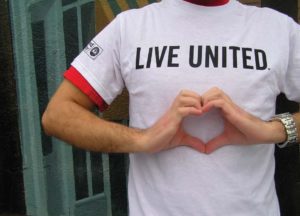
The United Way of Westchester and Putnam announces that $1 million in grants have been distributed among more than 50 local, nonprofit organizations responding to unprecedented needs driven by COVID-19.
“COVID-19 has created an economic crisis the likes of which we haven’t seen in 90 years,” said United Way President and CEO Tom Gabriel. “In response, the United Way is honored to be able to distribute $1 million in Emergency Food and Shelter funding to help our nonprofit partners address the basic human needs of families in our community. As a result, we estimate that more than 300,000 families will be helped through this funding.’’
The funds were made available through the Emergency Food and Shelter Program (EFSP) Boards in Westchester and Putnam counties. This program provides federal funding which helps to extend currently available services for the hungry or homeless or at risk of eviction. The United Way of Westchester and Putnam is the administrative agent of the Local EFSP Boards in Westchester and Putnam counties.
“The Bridge Fund of Westchester is extremely grateful for the Emergency Food and Shelter Program (EFSP) funding,” said Grace Perry, director of The Bridge Fund. “We primarily service client households that are employed but sit right on top of the poverty line and often do not qualify for public benefits, such as food stamps. However, these clients struggle monthly to meet a barebones budget and any crisis can give way to a missed rent payment, food insecurity etc. The pandemic only exacerbates these circumstances. The EFSP grant funding allows organizations like The Bridge Fund to help not only meet these most basic needs for individuals and families, but also ease their worry and give a sense of hope”.
This is the second round of grants that has been awarded to nonprofits through the United Way of Westchester and Putnam. In May, 31 local nonprofit organizations were collectively awarded $120,000 in grants thanks to the United Way’s John M. Bendheim Community Disaster Response Fund and Bonwit Fund, as well as The PepsiCo Foundation.
Here is a list of organizations that received funding in the latest round.
ANDRUS
Bethel Temple of Praise
The Bridge Fund
Caring for the Hungry and Homeless of Peekskill, Inc.
Catholic Charities Community Services
Cerebral Palsy of Westchester, Inc.
The Children’s Village
CHOICE of NY
Church of the Ascension
Community Center of Northern Westchester
Croton-Cortlandt Food Pantry
Don Bosco Community Center of Port Chester, Inc.
Feeding Westchester, Inc.
First Presbyterian Church of Yorktown Food Pantry
Family Resource Center of Peekskill
Food Bank of the Hudson Valley
Friends of Karen
Family Services Society of Yonkers
Giving Tree Global, Inc.
Gullotta House
H.O.P.E. Community Services
Hillside Food Outreach
Holy Name of Mary Church DBA Loaves and Fish Soup Kitchen
Hope’s Door
Jawonio Inc
Legal Services of the Hudson Valley
Life Progressive Service Group, Inc.
Lifting Up Westchester
Meals-on-Wheels of New Rochelle, Inc
Mount Kisco Interfaith Food Pantry, Inc.
My Sisters’ Place, Inc.
Neighbors for Refugees Inc.
OLMC-Elmsford Community Food Pantry
Port Chester Carver Center
The Preservation Company, Inc.
Putnam/Northern Westchester Women’s Resource Center
Putnam CAP
Salvation Army
SPRING Community Partners
St. Christopher’s Inn
St. Mary’s Food Pantry – Mohegan Lake
St. John’s Food Pantry – Mahopac
Sts. John Paul & Clement Food Pantry
Westchester Community College Foundation
WestCOP
Westchester Jewish Community Services
Westhab
Westchester Residential Opportunities
YMCA of Yonkers
Yonkers Community Action Program
Youth Shelter of Westchester
YWCA of White Plains
United Way of Westchester and Putnam (UWWP) provides strategic resources and tools to residents in crisis or who are marginalized due to personal or life’s circumstances. These include the 2-1-1 helpline, early literacy programming for preschoolers, job skills training and financial empowerment for adults, as well as access to health services.